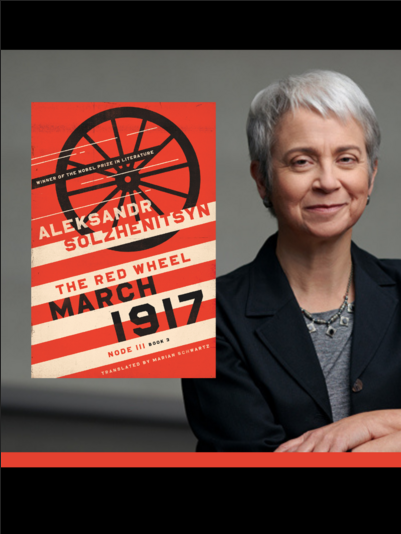Marian Schwartz on Translating The Red Wheel
/Prolific translator Marian Schwartz talks about translating Russian literature, and notably March 1917, into English.
“Schwartz describes her commitment to translating Russian writers and the importance of their publication in the United States, “I came of age during the Cold War gripped by the injustice and brutality of the Soviet Union. In the dark 1970s, no author had a bigger impact on the West’s perception of that reality than Aleksandr Solzhenitsyn, beginning with his soul-shattering novella One Day in the Life of Ivan Denisovich, and culminating in 1974 with the publication in English of his monumental The Gulag Archipelago. Both those books hit me hard just as I was learning Russian and falling in love with one of the world’s great literatures, many of whose writers had suffered and were then suffering a hideous fate. In graduate school, I began thinking about translation. I felt a natural impulse to share this important and beautiful writing with my fellow English speakers.””


